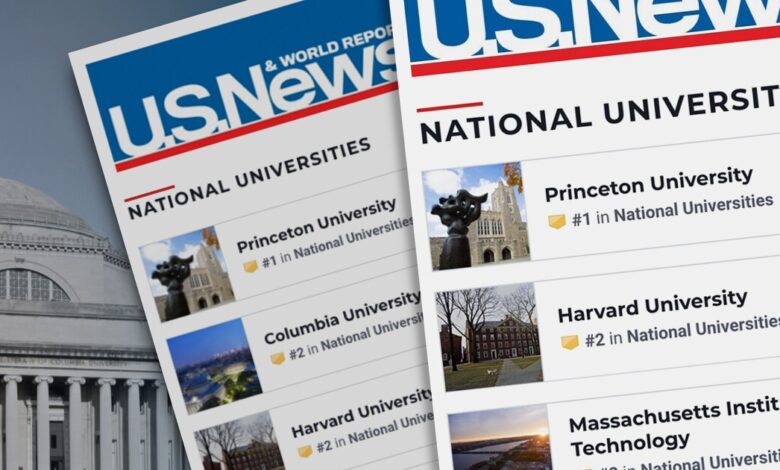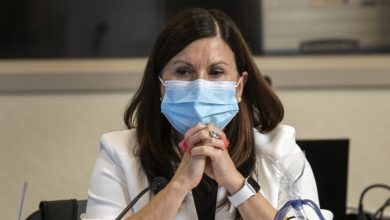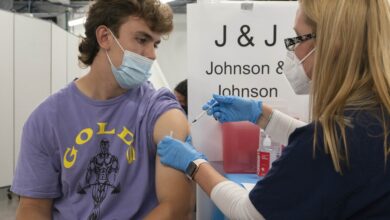Columbia U. Gets a Lower ‘U.S. News’ Ranking After Scrutiny of Its Data

[ad_1]
U.S. News & World Report ranked Columbia University No. 18 among national universities for 2023, after having pulled the Ivy League institution’s numerical rank in July because of alleged data-accuracy problems. Before it was unranked, Columbia was No. 2.
Columbia’s new position — revealed on Monday in the updated U.S. News college rankings — is based on the publication’s reputation survey, publicly available federal data, and calculations made by U.S. News, Bob Morse, its lead rankings analyst, wrote in a statement to The Chronicle. Typically, U.S. News analysts rely heavily on self-reported data to calculate colleges’ ranks. However, that information wasn’t available for Columbia in time for this year’s list. Columbia’s provost, Mary Boyce, announced on Friday updated self-reported data of the type colleges usually send to U.S. News in the first half of the year.
The result is that in U.S. News’s database, Columbia is missing statistics that other national universities have, such as the graduation rate of Pell Grant recipients and the percentage of classes that have fewer than 20 students, which very likely hurt Columbia’s ranking. The university has not ranked as low as No. 18 since 1988, according an analysis posted online by Michael Thaddeus, a math professor at Columbia. It was Thaddeus’s analysis, which he published in February and which questioned the accuracy of Columbia’s ranking, that set in motion the decisions that led to Columbia’s diminished rank today.
In June, Boyce announced that the university was investigating its data-submission processes and wouldn’t be sending any numbers to U.S. News this year. In July, U.S. News pulled Columbia’s numerical ranking for 2022.
Morse said U.S. News ranks colleges that don’t submit their own data. For example, Reed College has famously bowed out of the submission process for nearly 30 years, but U.S. News still ranks it.
On Friday, Boyce announced results from Columbia’s investigation. The university’s calculations of its class sizes and proportion of faculty members with terminal degrees, two measures that Thaddeus had questioned, “relied on outdated and/or incorrect methodologies,” Boyce wrote in a statement. The university posted updated numbers for those in Common Data Sets, a data-reporting form that many colleges voluntarily post to their websites. Until Friday, Columbia had been the only Ivy League institution not to have a public Common Data Set. Thaddeus had called for his university to make that information public.
“The Columbia undergraduate experience is and always has been centered around small classes taught by highly accomplished faculty. That fact is unchanged. But anything less than complete accuracy in the data that we report — regardless of the size or the reason — is inconsistent with the standards of excellence to which Columbia holds itself,” Boyce wrote. “We deeply regret the deficiencies in our prior reporting and are committed to doing better.”
After Columbia began reviewing its data and protocols, two former students brought a class-action suit against the university, claiming that the alleged data problems “raised grave concerns about the value and legitimacy of a Columbia degree.”
[ad_2]
Source link






